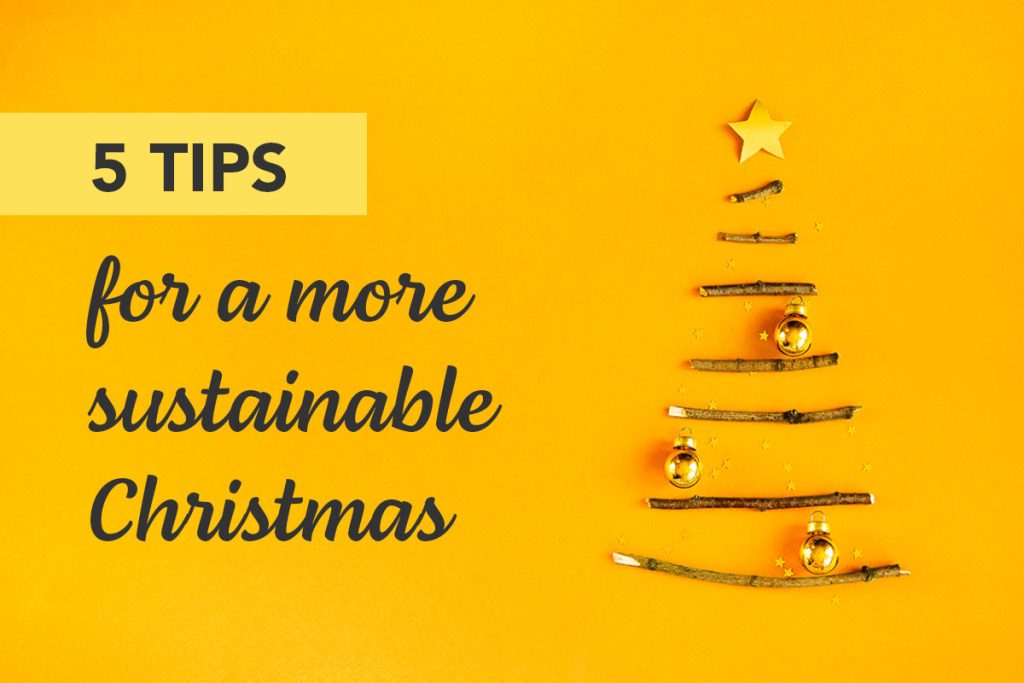One of the things many of us love about Christmas is that it’s traditionally a time of generosity and giving. But unfortunately, it’s also a time where there is huge potential for waste.
A 2019 SMH article cited an estimated $400 million was spent on 10 million unwanted gifts in 2018. We use 8,000 tonnes of wrapping paper each Christmas (most of which ends up in the bin). And we because we buy much more food than we need, a lot of that food ends up in the bin too.
The good news is, you don’t need to be a Christmas Scrooge to approach the festive season in a more environmentally and financially sustainable fashion. There are some little things you can do that, if done by a large number of people, can make a big difference to the world and our wallets this Christmas.
Here are five ideas.
1. Buy things that can go the distance
Because Christmas trees, ornaments and decorations can be so cheap these days, it can be tempting to get new ones every year. It’s of course much better to buy a quality tree and more expensive and lasting ornaments that can be used for many years instead of just one.
Similarly, it can be easy to buy cheap clothes and plastic toys as gifts. If you’re able to stretch the budget to buy items that are higher quality, or meaningful in nature, they are less likely to be thrown away and end up in landfill.
‘Going the distance’ is one of the reasons we love giving books as gifts. They are not only a gift of learning and relaxation, but books go on shelves once read rather than in the bin.
2. Avoid fancy wrapping paper
You know – the kind that’s shiny or has fancy foiling. Yes, it’s very pretty, but no, it cannot be recycled like most other wrapping paper that is paper only. On that note, do make sure your (non-shiny/paper-only) wrapping paper goes in the recycling bin on Christmas day. Even if it has little bits of sticky tape on it, it can still be recycled.
3. Give experiences as gifts
Movie tickets. Concert tickets. A day at the Perth Zoo or Adventure World. A cave tour. Wine tasting in the Swan Valley. Whale watching. A high ropes course in the trees. Not only is it impossible for these things to end up in landfill, they also give the opportunity to create fun and lasting memories.
4. Avoid throwing away unwanted gifts
Re-gifting gets a bad rap. But as long as no one’s feelings get hurt in the process, it’s a great way to ensure that unwanted gifts don’t end up in an op shop bin (or the regular bin).
A good tip is to put a sticky note on the item saying who gave you the gift and have a place where you store all items you plan to re-gift. This avoids the awkwardness of re-gifting something to the person who gave it to you. It’s also a good policy to ensure that when you re-gift something to someone else, it’s something you know they’d like (rather than giving something to someone just because you have it on hand). Re-gift items are also good for donating to your school when they’re running a white elephant stall or the like.
5. Plan ahead to cut back on food waste
Most of us over-cater at Christmas and this can be more about lack of planning than anything else. You don’t need to plan things within an inch of their life. It can be a simple matter of knowing exactly who’s coming for Christmas lunch or dinner, making accommodation for unexpected extras, and then allocating dishes that match the numbers on hand rather than simply saying ‘everyone bring a dish’. Pre-planning can also help you avoid having five meat dishes, one salad and no desserts.
It’s also worth rationalising how many pre-meal snacks are on offer during the day. If everyone fills up before the main Christmas meal, you’re going to have many more leftovers than you expected.
Speaking of leftovers, you can ask everyone to bring a container with them to take leftovers home in. This will ensure leftovers are shared out evenly, and that a minimum of disposable plastic is used to distribute them.
